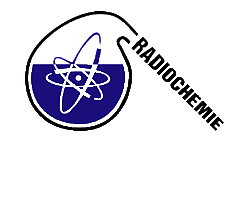Speaker
Prof.
Kenneth Czerwinski
(University of Nevada, Las Vegas)
Description
Compared to other elements on the periodic table, technetium and the actinides are less explored, especially in areas of compound synthesis and coordination chemistry. The nuclear fuel cycle offers opportunities to investigate fundamental and applied technetium and actinide chemistry in more detail, with fundamental complexation chemistry providing insight into waste forms, fuels, and separations. Examples are given for technetium and actinide solution and solid phases, with the coordination chemistry explored by spectroscopy and diffraction.
An overview on technetium waste forms is provided, highlighting the need for fundamental information on this element to improved synthetic routes and understand resulting behavior. The thermal and hydrothemal based synthesis of technetium compounds is described. Spectroscopic and diffraction results are provided. Trends in the products from computation [1] and experiment are discussed, emphasizing the role of technetium-technetium interaction with oxidation state change. For waste forms, low valent or metallic phase formation demonstrates enhanced inter-technetium interactions which grants the resulting compounds resistance to corrosion or limits solubility.
Development of advanced fuels can leverage innovative synthetic techniques that are utilized in the laboratory and non-nuclear industry. In particular methods that use novel reactions with common starting materials can be applied to produce fuels with suitable attributes for advanced fuel cycles. An example is provided based on the formation of uranium mononitride from dinitride starting material [2]. Uranium dinitride is air stable and can be produced from oxide starting material. Uranium dinitride pellets can be formed in air and then sintered under inert atmosphere to produce uranium mononitride. The unique method for the nitride synthesis can be coupled with established sintering techniques to produce fuel. These waste form and fuel illustrations exemplify the utility synthesis reactions can play in the future fuel cycles.
Solution based separation of trivalent lanthanides from Am and Cm is also provided as an example of the utility of speciation and coordination chemistry in the nuclear fuel cycle. Soft donor ligands such as dithiophosphinic acids and bis-1,2,4-triazinylpyridine/bipyridine (BTP/BTBP) derivatives show significant separation selectivity. Many of these ligands are limited by poor stability, constrained working pH range, solubility in suitable solvents, and competition from counter anions. Various triazinyl and bis-triazinylpridine (H, Methyl, Ethyl, Pyridyl and Phenyl) derivatives have been synthesized and their complexation with Eu3+, Tb3+ and Cm3+ by time resolved laser fluorescence spectroscopy presented. The solvent is found to play a significant role in the complexation behavior and resulting speciation and coordination. In the acetonitrile medium, the complexes contain one ligand molecule per metal ion. Spectroscopic signatures change to ML3 species in methanol medium. For hard acceptors acetonitrile is known to be less solvating as compared to methanol. The Eu3+ ion, being a hard cation, is less solvated by acetonitrile and the nitrate counter anion strongly binds with it and the BTP molecules. When the Eu(III) complex of Py-BTP was prepared in acetonitrile medium, the single crystal XRD result shows that it acts as a tetra-dentate ligand with the stoichiometry Eu(Py-BTP)(NO3)3 resulting in 10 coordinated Eu(III) ion. The overall results show the utility of radioelement speciation, compound synthesis, and coordination chemistry in expanding general chemistry knowledge and the development of applications exploiting radionuclide synthesis, speciation, and coordination chemistry.
1. Weck, P.F., et. al Inorg. Chem. 48(14), 6555-6558 (2009).
2. Yeamans, C.B.,et.al J. Nucl. Mat. 347, 75-78 (2008).
Author
Prof.
Kenneth Czerwinski
(University of Nevada, Las Vegas)
Co-authors
Erik Johnstone
(University of Nevada, Las Vegas)
Frederic Poineau
(University of Nevada, Las Vegas)
William Kerlin
(University of Nevada, Las Vegas)

